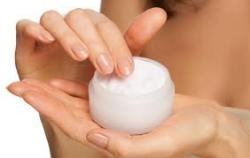The cooler (and soon colder) months are upon us. As your wardrobe and eating habits will change, so, too, should how you care for your skin. It is well known that the weather (read: environment) has a significant impact in your skin. Follow these FAB Five tips for ensuring that the Fall?Winter seasons do not cause your skin to become irritated or dehydrated or to age prematurely.
1. Change your cleanser. Gels often contain drying alcohols, and lotions may be too lightweight. In cooler months, marked by reduced humidity , lower air temps, and windy conditions, consider changing your cleanser to a cream or balm. Both of these textures tend to strip your skin less of its natural protective oils without leaving a residue. They also may be more moisturizing.

2. When transitioning from spring/summer to fall/winter, also transition your moisturizer. Change to one that is thicker and contains nourishing ingredients as hyaluronic acid and ceramides. Also look for creams or milks that contain protective ingredients as (refined) essential oils.

3. Change your state; change your looks. How you eat will determine which nutrients are available for your skin to protect itself from the elements. Opt for nutritious warming food (soups) and drinks (teas). Reduce sugar and processed foods. Eliminate chemical food additives and alcohol. Eat more salads, green smoothies, vegetables and herbs. Also consider doing regular fasting and detoxification to help reset your gut.

4. During colder months where dryness is common, stay internally hydrated by drinking 1.5-2 liters of water daily. This is an all-season rule of beauty.

5. Gently exfoliate. Whether you choose a chemical exfoliant (as a retinoid) or a mechanical one (brush), reduce the abrasiveness of the exfoliation and cut back from daily to twice weekly.
These FAB Five tips for seasonal skincare will help you glow all season long!
Bonus:
6. Don't sleep on sleep. Sleep is a dehydrating event. This will affect your skin. Also, lack of sleep lowers pH levels, which can cause dry skin. Inadequate sleep raises cortisol levels. Cortisol is the stress hormone that triggers inflammation. Excess inflammation breaks down the proteins that keep skin healthy. Inflammation can also make your skin more susceptible to acne and more sensitive to allergens.
